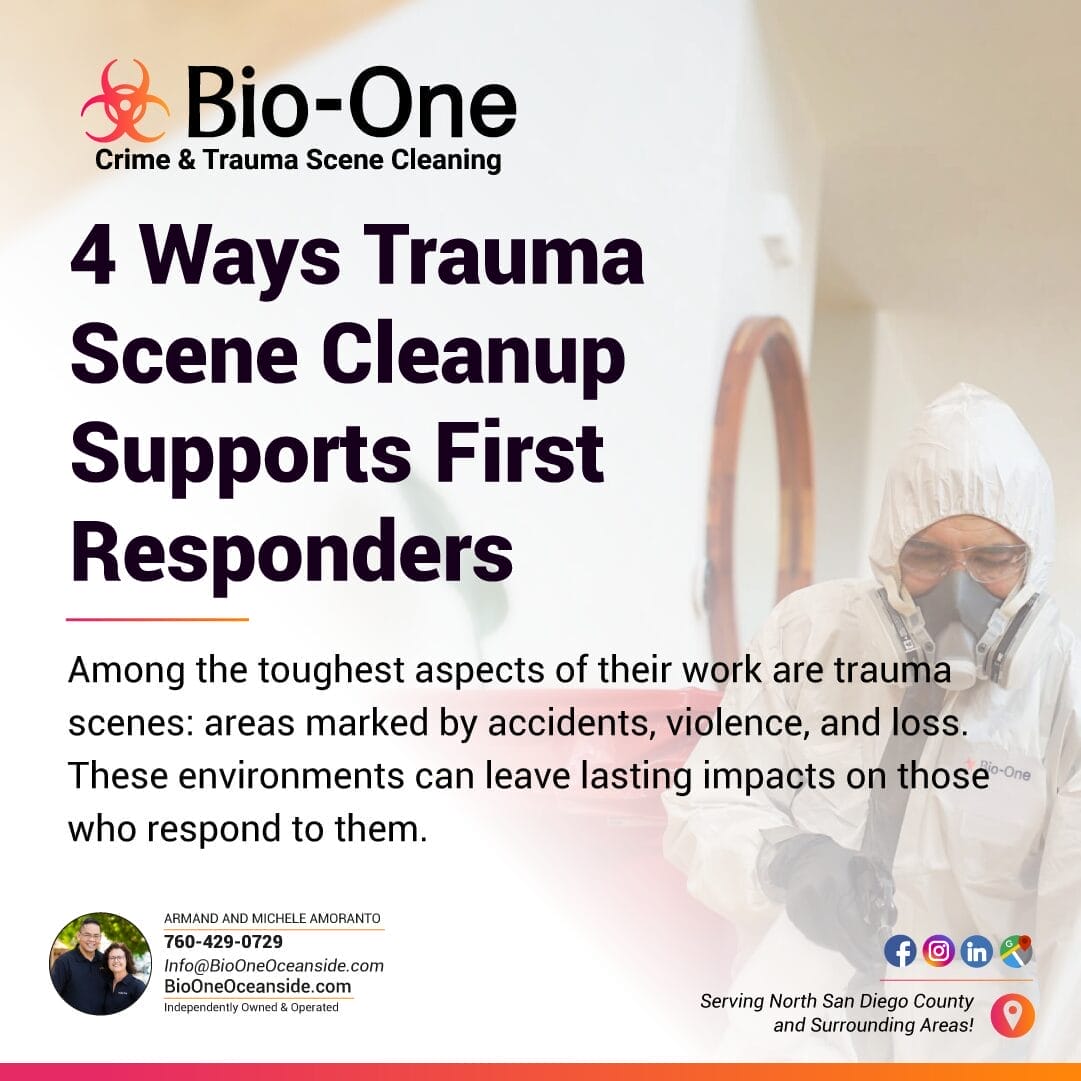
First responders are everyday heroes who face extraordinary challenges. Whether extinguishing a fire, providing emergency medical care, or securing a crime scene, they encounter situations that test them physically and emotionally. Among the toughest aspects of their work are trauma scenes—areas marked by accidents, violence, and loss. These environments can leave lasting impacts on those who respond to them. One vital, though often overlooked, factor that can help alleviate these challenges is professional trauma scene cleanup.
Here are four critical ways trauma scene cleanup supports first responders, ensuring their safety, health, and ability to continue serving their communities with resilience.
1. Promoting Physical Safety
Trauma scenes often contain biohazards such as blood, bodily fluids, or other potentially infectious materials. Without proper cleanup, these hazards can pose significant health risks, exposing first responders to diseases like hepatitis or HIV. Most first responders have limited training in handling these contaminants safely.
Professional cleanup teams, on the other hand, are equipped with industrial-grade disinfectants, protective gear, and specialized techniques. By eliminating pathogens and restoring safety to the environment, trauma cleanup services prevent harmful exposure, allowing first responders to focus on their roles without worrying about unseen dangers.
2. Reducing Emotional Triggers
Witnessing a traumatic event is already an emotional burden for first responders. Having to revisit the scene for cleanup—or encountering it again in an unchanged state—can intensify feelings of distress, amplifying the risk of post-traumatic stress disorder (PTSD) and anxiety.
Professional trauma scene cleanup minimizes these emotional triggers. Specialists work quickly and discreetly to remove all visible reminders of the event, providing closure for the responders and families involved. This service helps mitigate long-term psychological scars, letting first responders focus on healing and moving forward.
3. Easing Occupational Stress
First responders save lives and protect communities, but they don't perform cleanup duties. However, in the absence of professional assistance, they may feel pressured to take on this responsibility, adding to an already overwhelming workload.
By stepping in, trauma cleanup services alleviate a critical but time-consuming task. This division of labor allows first responders to focus on their primary mission of responding to emergencies and protecting lives. Knowing that cleanup is being handled efficiently and empathetically also relieves the mental burden of worrying about leaving a site in disrepair.
4. Supporting Mental Health and Well-Being
The mental toll of exposure to trauma scenes can be profound. Studies indicate that 85% of first responders develop symptoms of mental health conditions like depression, anxiety, or PTSD. Having to manage the aftermath of a tragic event alone further exacerbates this strain.
Many cleanup companies offer resources or can connect first responders with mental health professionals. This extra layer of care not only fosters healing but also sends a powerful message that their well-being matters as much as their brave service.
Bio-One is Ready to Help!
By promoting safety, minimizing emotional stressors, lightening their workload, and supporting mental health, these services play an essential role in the long-term well-being of those who protect and serve us on the frontlines.
Acknowledging the value of professional cleanup services is a crucial step in reducing the stigma surrounding trauma. By ensuring that these heroes have the physical and emotional support they need, we empower them to continue their critical work with strength and resolve. Investing in trauma scene cleanup means investing in the health and safety of those who dedicate their lives to ours.


